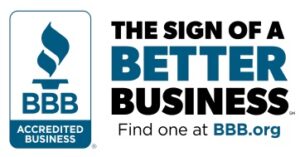
Special to IFN
Better Business Bureau is warning consumers about a troubling trend involving deep-fake videos that promote a weight-loss product. Over the course of two months, BBB Scam Tracker received over 170 reports regarding a product called LipoMax, which is marketed as a form of the popular “pink salt trick” on social media.
Reports describe how fake videos were used to sell the supplement. Consumers reported seeing deep-fake videos of celebrities, such as Oprah Winfrey, as well as alleged physicians, endorsing the product on social media.
Reports have been received from the following states: Arizona, Arkansas, California, Colorado, Florida, Georgia, Illinois, Indiana, Kansas, Kentucky, Louisiana, Maine, Maryland, Massachusetts, Minnesota, Missouri, Montana, Nebraska, Nevada, New Hampshire, New Jersey, New Mexico, New York, North Carolina, Ohio, Oklahoma, Oregon, Pennsylvania, Rhode Island, South Carolina, Tennessee, Texas, Virginia, West Virginia, Wisconsin.
A consumer from Illinois told BBB’s Scam Tracker: “I was on Facebook and noticed a video with Oprah Winfrey and a doctor speaking of the “pink salt trick diet.” Oprah herself talked about the magnificent results as did others on the video. Oprah also claimed she funded the project to manufacture the LipoMax product (pink salt trick). I figured Oprah-this must be legit. Over $400 after ordering the product I did indeed receive the order… Now I continue to receive emails asking me to sign on with a weight loss coach for more money.”
A Florida consumer reported: “I purchased a 6-month supply for $303.95. I thought [the] video was really with Oprah in it about LipoMax. I was also contacted by a ‘coach’ for LipoMax after my order, who tried to sell me $800 in additional supplements.”
A BBB investigation revealed that LipoMax is trademarked by a company registered in Wyoming; however, consumers are directed to send returns to addresses in Lakeland, Fla., and Largo, Fla.
Reports also claim improper billing, non-existent customer service, ineffective ingredients and continued pressure to buy additional supplements, by someone claiming to be a LipoMax “coach.”
In response to the BBB, a LipoMax representative stated that the use of AI-generated or “deep-fake” videos is neither authorized nor endorsed by the company, and the videos are not produced by the company. They also added that due to the independent nature of affiliate marketing, they do not have control over the content affiliates may create. The company stated it is committed to addressing any misuse in order to protect its brand and consumers.
Be Wary
To help avoid weight loss scams, BBB has a list of tips on misleading ads and subscription traps for weight loss:
♦ Always be wary of advertisements and customer endorsements promising “miracle” results or immediate weight loss. The Federal Trade Commission warns consumers that many shady weight loss products are accompanied by false promises. For example, if an ad says their product will make you lose weight “permanently,” you’re looking at a false promise.
♦ Don’t be quick to trust endorsements. Many scammers use pictures of celebrities, TV show mentions, or well-known company logos to gain consumers’ trust without their permission. Always research the company before doing business with them, no matter who supposedly endorses their product.
♦ Avoid products that claim to help lose weight without diet or exercise. Be especially skeptical of claims that you don’t have to change your eating habits. Doctors, dieticians, and other experts agree that losing weight takes work and should be gradual. According to the Centers for Disease Control and Prevention, losing 1-2 pounds per week is a healthy goal and is more successful in achieving long-term weight loss. Pass up any product that promises miraculous, sudden results without any effort.
♦ Check a product’s ingredients with the FDA. Be suspicious of taking special pills, powders, or herbs. Some products have been recalled for containing ingredients with potentially dangerous effects. Check the list of public notifications from the FDA regarding potentially harmful weight loss products. In Canada, check with Health Canada for guidelines.
♦ Be wary of a lack of an ingredients list. Some companies have been accused of not advertising certain ingredients that can come with harmful side effects or mix adversely with prescription drugs.
♦ Be wary of free trial offers, and before signing up, understand all the terms and conditions. These deals can become “subscription traps” that hook consumers into expensive shipments of products they did not agree to buy. Before clicking check out or purchase, make sure the cart only includes the items you wish to purchase and does not include signing up for a subscription unless this is an option you want. Be cautious of any contract that takes payment from your credit card until you cancel.
♦ When participating in online forums and chat rooms focused on weight loss and fitness topics, be wary of individuals pushing products they claim will help quickly reach goals.
♦ Research the company with BBB.org before purchasing. Read reviews about the company to see if there are any complaints alleging that it’s a scam.
♦ Report the deceptive ads. Be suspicious of ridiculously positive testimonials on the company website. Testimonials have become an easy marketing tool and are easily faked. These are often accompanied by glorious before and after pictures. Call your BBB to report suspicious, confusing, or misleading ads to BBB Ad Truth or report a scam with BBB Scam Tracker.



